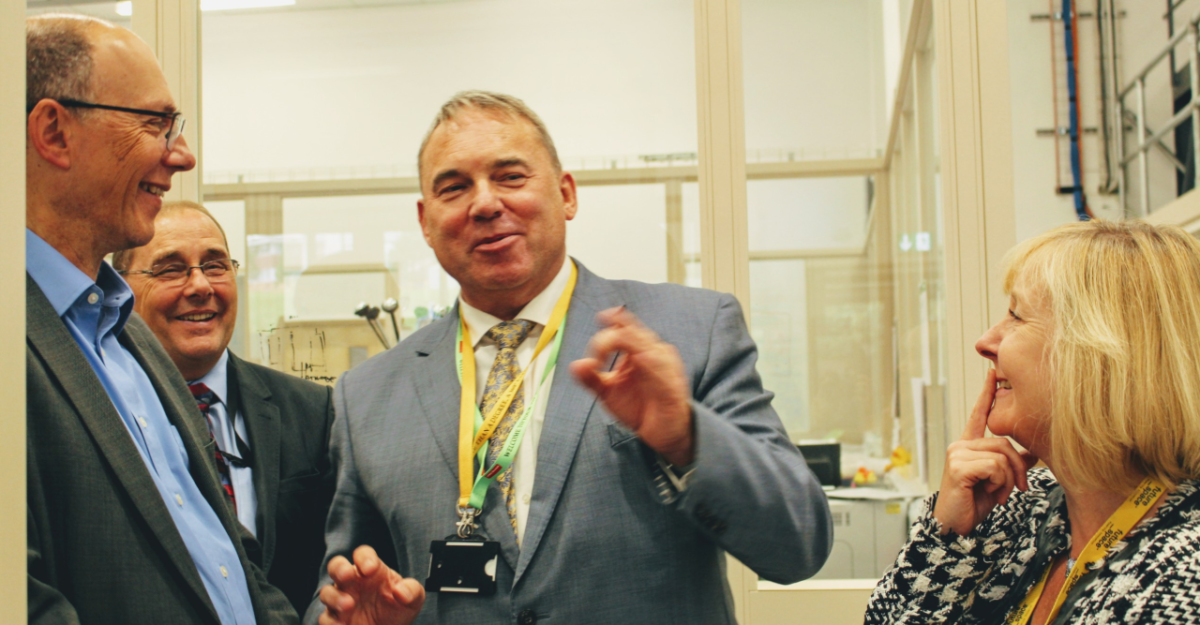
As well as being Vice-Chancellor of the University of the West of England and chair for the West of England AHSN, Professor Steve West chairs the West of England Local Enterprise Partnership (LEP). Here Steve writes about how the LEP is working alongside authorities across the region to drive sustainable economic growth and improve health and social care for local communities.
How do you drive economic growth in a way that is sustainable, responsible and inclusive? What do businesses need in order to thrive, sustain and grow? And how do we do that in a way that delivers prosperity to all? These questions are exactly what the West of England Local Enterprise Partnership (LEP) has been working on since our formation about six years ago now.
LEPs are business-led organisations designed to drive local economies. Our job is to fund projects that are benefiting businesses, schools, colleges, universities and residents across the region, considering three core issues.
Firstly, we’re here to bring the voice of businesses and universities to local authorities in terms of skills and education. We’re increasingly thinking about how to join up our efforts across schools, universities, colleges, businesses and employers to get a sense of how to grow a workforce in a sensible way, and with the right skills mix. We want to get the balance right, so that some jobs will be high-end graduate jobs and others will require different skills. If we don’t have the mechanisms to feed industry or public sector services with the right skills, they’re not going to flourish.
Secondly, we have to consider infrastructure, both digital and physical. We want to make sure that the balance works across an entire region, so we don’t end up with ‘dead spots’. If we’ve got rubbish infrastructure and people can’t get to the right places to work, then chances are those businesses are not going to thrive.
And the third issue is housing and employment facilities. If people can’t afford to live in the region, then we’ve got a real problem.
The workforce challenge
When we apply those principles to health and social care we can see that we have a huge workforce challenge. The thing that will derail us in the future won’t be the fact that we haven’t managed to open up another engineering company. The thing that will derail us will be that we have an ageing population that isn’t ageing well, and we haven’t got the right people in place to take care of them.
If we’ve got an ageing population as well as challenges in getting a health and social care workforce, we need to resolve that somehow. Some solutions will be between innovation, technology, robotics and artificial intelligence (AI), but people are always going to be crucial.
Where do those people come from and how do we make health and social care an attractive career? How do we get the skills mix right? Where will those employees live and how will they travel around the region? This is where all my roles come together, and I can see that health and social care has to be a central part of the LEP.
What we’re starting to do is to bring the right people from across the NHS, AHSN, LEP and local authorities around the table. Together we want to start thinking about how we do things differently, how we innovate and how we spread that innovation. These problems are never going to be solved through people working in silos.
And that’s where my various roles really begin to fit together. Because I chair both the West of England AHSN and LEP, as well as being Vice Chancellor for UWE and holding roles with other national bodies, I may be able to help solve a few problems by enabling collaborations. I can bring the health and care component right to the heart of economic growth, and that’s where things begin to get really exciting.
Posted on May 31, 2019 by Professor Steve West, Chair, West of England AHSN


